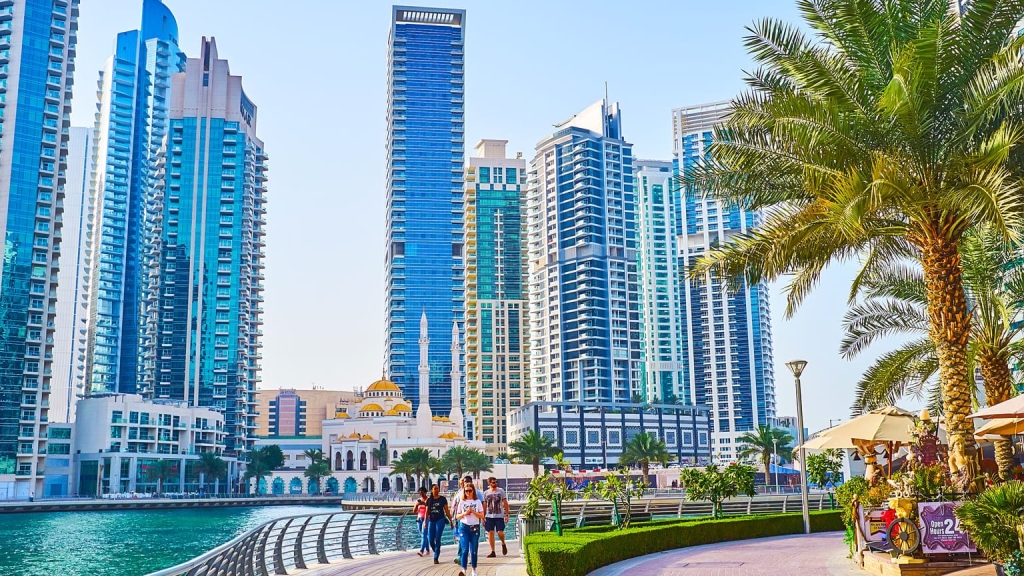Dubai, with its rapid development and thriving economy, has become a hotspot for real estate investment. However, before delving into the Dubai property market, it is crucial to understand the laws and regulations that govern the industry. In this comprehensive guide, we will explore the Dubai real estate regulations that protect the rights of buyers and sellers, promote transparency, and ensure a fair market. We will cover various aspects, from property ownership to transactional processes, providing you with valuable insights into the Dubai real estate landscape.
Introduction to Dubai Real Estate Regulations
Dubai’s real estate market is regulated by various laws and regulations enforced by the Dubai Land Department (DLD). The DLD is responsible for overseeing and recording all real estate transactions in Dubai. It works in collaboration with the Real Estate Regulatory Agency (RERA), a government body established in 2007 to regulate the property sector. RERA plays a crucial role in setting policies, making plans, and resolving disputes to ensure a transparent and efficient real estate market.

Ownership of Real Estate
In Dubai, various forms of property ownership exist, including absolute ownership (freehold), grant, usufruct, musataha, and leasehold. Absolute ownership grants unrestricted ownership rights to the property without any time limitations. Granted land is given by the Ruler of Dubai to UAE citizens, subject to certain conditions. Usufruct is a ‘real’ right similar to a lease, while musataha includes the right to develop the land and construct buildings on it for up to 50 years. Leasehold refers to a personal right granted by the landlord to the tenant for exclusive occupation of a property.
Forms of Real Estate Ownership
Dubai offers various forms of real estate ownership, catering to the diverse needs of investors. Freehold ownership is the most popular form, allowing buyers to own the property and the land indefinitely. Leasehold ownership grants the right to occupy a property for a specified period, typically ranging from 25 to 99 years. Commonhold ownership involves shared ownership of a property, including common areas and facilities. Each type of ownership has its unique characteristics and benefits, attracting different segments of buyers in the Dubai real estate market.
Ownership Restrictions
Ownership of real estate in Dubai is restricted to specific categories of individuals and entities. UAE citizens, citizens of other countries in the Gulf Cooperation Council (GCC), wholly-owned GCC companies, and public joint-stock companies are eligible to own property. Non-GCC nationals can acquire ownership rights, including absolute ownership and long-term leasehold interests, in designated areas of Dubai. The Ruler of Dubai has the authority to designate these areas, allowing non-GCC nationals to invest in the Dubai property market.
Mandatory Pre-emption Rights
In Dubai, there are no specific laws imposing pre-emption rights in property transactions. Pre-emption rights refer to the right of first refusal, giving certain individuals or entities the opportunity to purchase a property before it is offered to the general market. However, in the absence of such laws, property transactions in Dubai follow a different process, as we will explore in the following section.
Transactional Process
The process of buying or selling property in Dubai involves several steps and requirements. To initiate a transfer of ownership, the parties involved must submit an application to the Dubai Land Department (DLD) through one of its trust offices. Each party must attend the trust office in person or appoint a representative with a valid power of attorney. The necessary forms are signed, and the DLD registration and transfer fees are paid. The transaction process may also require no objection certificates from relevant third parties. Due diligence and consents are essential aspects of the transactional process, ensuring a smooth transfer of ownership.

Effective Transfer of Ownership
The effective transfer of ownership in Dubai is facilitated by the Dubai Land Department (DLD). The DLD ensures that all necessary documents are in order, fees are paid, and the transfer process adheres to the relevant laws and regulations. The transfer of ownership is completed once the buyer pays the purchase price balance and registers the property in their name with the DLD. This process guarantees the legal transfer of ownership and protects the rights of both buyers and sellers.
Registration of Title
Registration of title is a crucial step in the property transfer process. In Dubai, the Dubai Land Department (DLD) maintains a comprehensive database of all properties and transactions in the emirate. It ensures that property titles are registered and recorded accurately, providing transparency and security to buyers and sellers. The DLD’s online platform allows easy access to property records, transfer procedures, and fee payments. The registration of title is essential for establishing legal ownership and preventing fraud in the Dubai real estate market.
Steps in the Transaction
The transaction process in Dubai involves several steps, from finding a suitable property to completing the transfer of ownership. Potential buyers must determine their budget, engage the services of a real estate agent or broker, conduct due diligence on the property, and make an offer to the seller. If the offer is accepted, a sales and purchase agreement is signed, and a deposit is paid to secure the property. Mortgage financing can be sought if necessary. The transaction concludes with the payment of the purchase price balance and the registration of the property with the Dubai Land Department.
Due Diligence
Due diligence is a crucial aspect of property transactions in Dubai. Buyers must conduct thorough investigations to ensure that the property is free from any legal or financial issues. This involves reviewing the property’s title deeds, assessing its physical condition, and verifying any outstanding debts or liabilities. Due diligence also includes examining the property’s location, amenities, and future development plans, providing buyers with a comprehensive understanding of the investment potential and risks associated with the property.
Consents
Consents play a significant role in property transactions, particularly in cases where third parties have an interest in the property. These consents may include obtaining permission from homeowners’ associations, mortgage lenders, or government authorities. Buyers must ensure that all necessary consents are obtained to proceed with the transaction smoothly. Failure to obtain the required consents can result in delays or complications during the transfer of ownership.
The Role of the Real Estate Regulatory Agency (RERA)
The Real Estate Regulatory Agency (RERA) plays a crucial role in regulating the Dubai real estate market. Established in 2007, RERA is responsible for setting policies and making plans to boost foreign investments and resolve disputes between tenants and landlords. RERA has administrative independence, its own financial system, and full legal authority to regulate the real estate sector in Dubai. It ensures compliance with regulations, promotes transparency, and protects the rights of all parties involved in real estate transactions.

Future Outlook for Dubai Real Estate Regulations
The future outlook for Dubai real estate regulations is promising. The Dubai government continues to introduce initiatives and regulations to attract foreign investment and ensure a transparent and efficient market. The Dubai Land Department (DLD) and the Real Estate Regulatory Agency (RERA) work together to implement policies that support the growth of the real estate sector and address any emerging challenges. As Dubai remains a global business hub and a desirable destination for property investment, the real estate market is expected to thrive in the coming years.
Conclusion
In conclusion, understanding the Dubai real estate regulations is essential for anyone looking to invest in the Dubai property market. The laws and regulations governing property ownership, transactional processes, and the role of regulatory agencies ensure transparency, protect the rights of buyers and sellers, and promote a fair market. By familiarizing yourself with the regulations outlined in this comprehensive guide, you can navigate the Dubai real estate landscape with confidence and make informed investment decisions.



